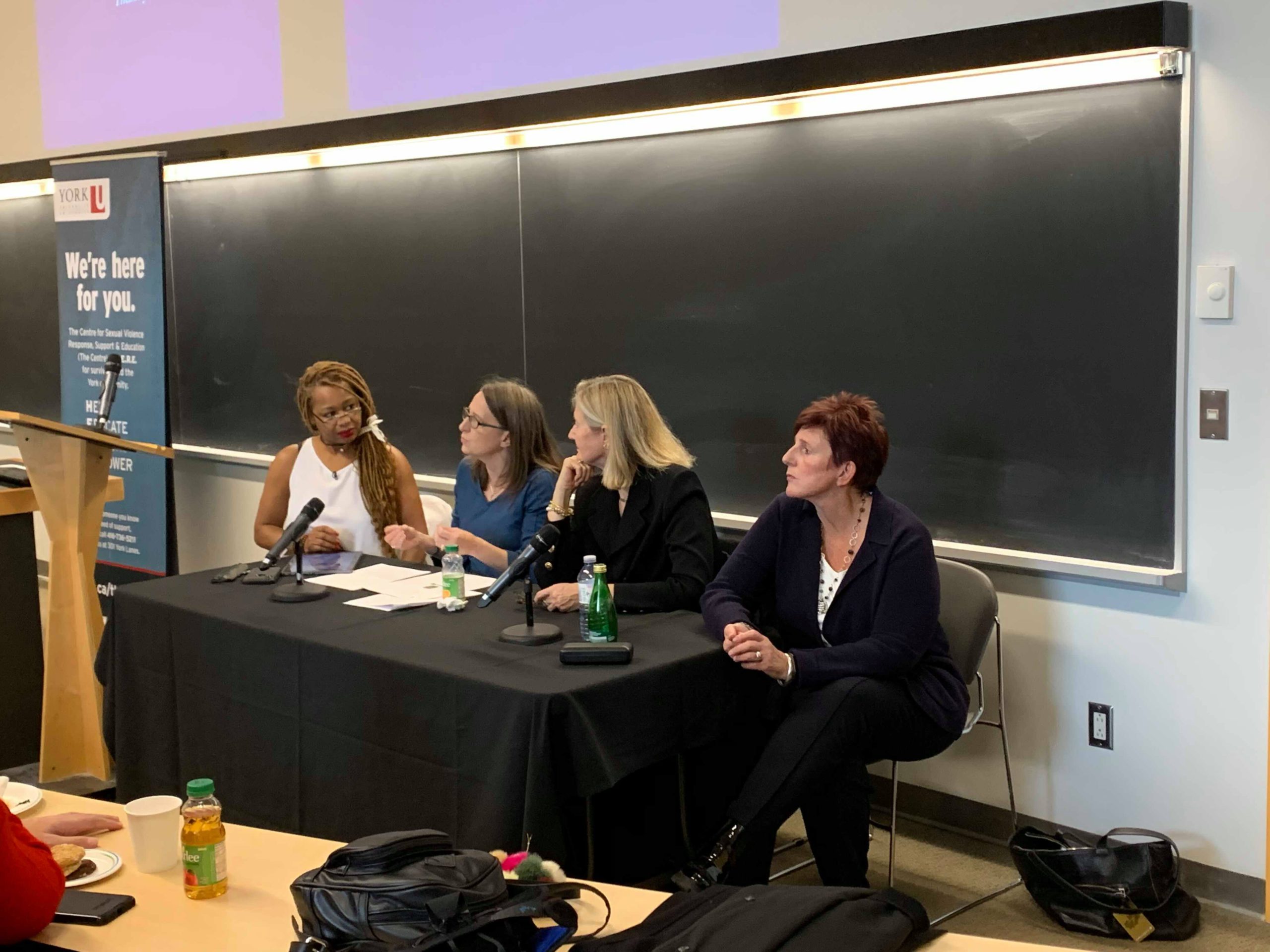Vipushi Sivanes | Contributor
Featured Image: The panel included Jennifer Llewellyn of the Schulich School of Law at Dalhousie University, Dr. Lori Haskell — a clinical psychologist — and Melanie Randall of the Faculty of Law at Western University. | Courtesy of Vipushi Sivanes/Excalibur
On Friday, November 1, York hosted the panel, “Restorative Approaches to Sexual Violence on Campus.”
Three panelists who were featured are leading ground-breaking research on this topic of restorative justice in such a concept.
The panelists were Jennifer Llewellyn, Dr. Lori Haskell, and Melanie Randall. They provided a comprehensive overview of the value of adopting a restorative justice approach while addressing the associated misconceptions and caveats of such an approach.
Dr. Haskell said restorative justice is an “approach to dealing with crimes and wrongdoings which takes seriously the need to repair relationships harmed by these experiences.”
Llewellyn added that the restorative approach “requires justice processes, practices and policies designed to respond to these instances.” This would “build fair, healthy, and safe relations in future” before going on to elaborate further on the educative and preventative nature of restorative justice.
Some worry that a restorative justice approach might not be strong enough to address the issue of sexual violence.
Randall said that unlike the traditional criminal approach, restorative justice takes a “victim-centered approach,” which ultimately “demands accountability from offenders.”
Randall added that sexual violence is an “epidemic” and said how “systems fail to meet the requirements of victims and survivors.” She also said that in a post-secondary context the responses to sexual violence are plagued by many of the substantive and procedural difficulties as seen in the criminal justice system.
The occurrence of sexual violence in post-secondary institutions has been a rampant ongoing issue. It has been estimated that 15 to 25 per cent of North American women enrolled in post-secondary education will experience some form of sexual violence during their academic tenure.
The panelists believe that educating students on alternative forms of justice such as that of the restorative approach is fundamental.
“Students are the most effective persons to ask different questions and to foster different kinds of conversations on what justice really means,” Llewellyn explained.
The bureaucracy of post-secondary institutions tends to function similar to the criminal justice system when students come forward to report instances of sexual violence.
When asked whether adopting a restorative approach in post-secondary institutions might enable students to be more forth-coming to report their cases of sexual violence, Llewllyn agreed wholeheartedly.
“If there is going to be a process that is going to understand in a much more nuanced way the complexities of the situations on campus, people might be more likely to come forward because they might find what they need rather than come forward in a system that is likely to only respond in a way that is convenient for the institutions.”
For the restorative justice process to be implemented on a practical level, there is much more research to be done. Conversations at post-secondary institutions like the ‘Restorative Approaches to Sexual Violence Panel’ aim to make that change easier and more efficient.


